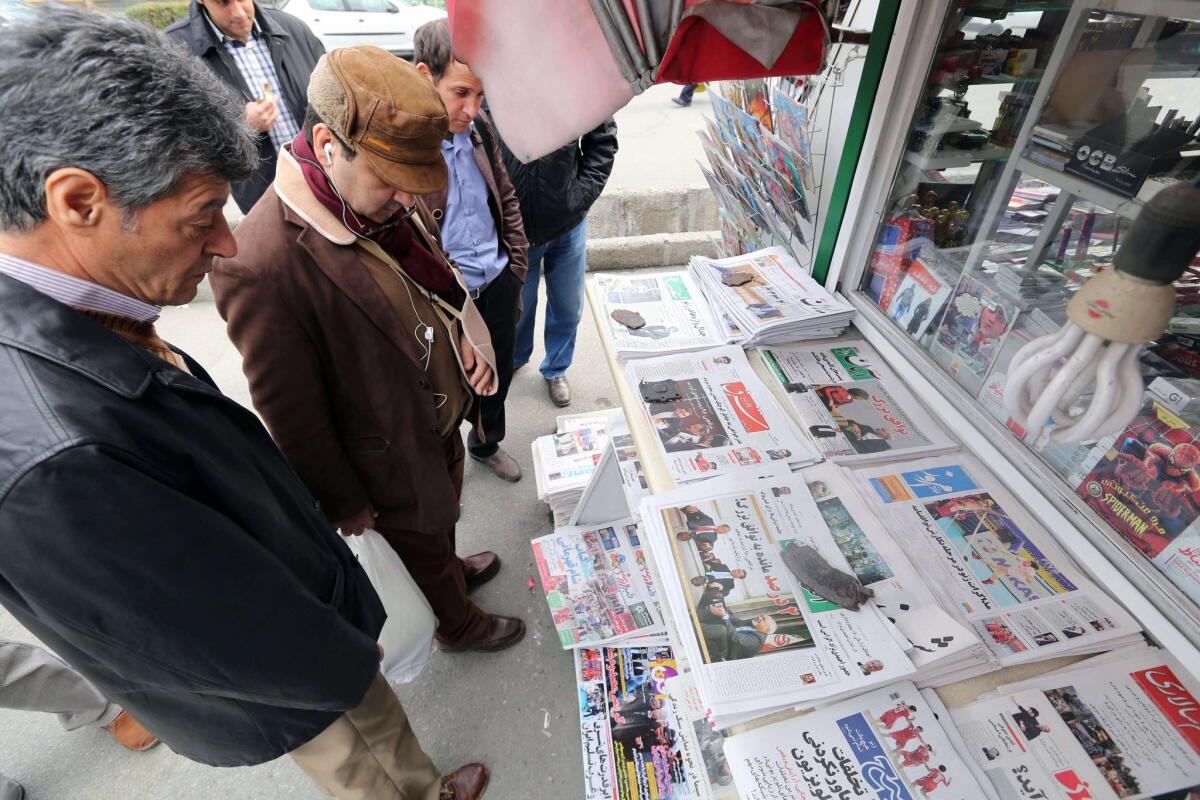Iran angered by fresh wave of U.S. blacklisting

WASHINGTON -- Iran complained Friday that U.S. blacklisting of Iranian firms and individuals this week violated the new international deal over its nuclear program, and suggested that it had halted talks in Vienna because of its unhappiness.
In a possible early sign of trouble for the 3-week-old deal, Iranian Deputy Foreign Minister Abbas Araqchi said the blacklistings, announced Thursday, were a “game of double standards” that was contrary to the spirit of the preliminary agreement signed between Iran and six world powers on Nov. 24, according to the official IRNA news agency.
He said Iran was evaluating the U.S. moves and would “react accordingly.”
Russia also objected to the 17 blacklistings, according to a statement from the Foreign Ministry.
The international agreement says there shall be no new sanctions on Iran during the negotiations on a final agreement over its nuclear program. The negotiations are expected to take six months to a year.
U.S. officials maintain that the fresh blacklisting represents enforcing existing sanctions rather than imposing fresh penalties.
Even so, Western officials insisted that the talks in Vienna, which are aimed at implementing the deal, had not been ended by an Iranian walkout. Rather, the two sides needed to check in with their superiors because of the “complexity” of the discussions, said Michael Mann, a spokesman for the European Union.
The talks had been expected to run two days, but went on for four before they were adjourned Thursday.
Secretary of State John F. Kerry said in comments to reporters while visiting Tel Aviv that negotiators were “making progress” but were at a moment at which they felt “the need to consult.” He said they would be resuming talks in a few days.
Supporters of the deal have been worried that additional sanctions could drive Iran from the negotiating table or unravel the support of the coalition of countries that have been taking part in sanctions in hopes Iran would accept limits on its nuclear program. Officials in many countries believe, despite Iran’s denials, that the Tehran regime is interested in gaining a nuclear weapons capability.
The U.S. Treasury Department’s new blacklisting was against Asian, European and Iranian oil and shipping companies accused of helping Iran evade sanctions. The announcement was made in part to reassure lawmakers that the Obama administration doesn’t intend to slack off on its sanctions enforcement during the upcoming negotiations.
The Vienna talks began Monday to try to iron out a long list of difficult technical issues involved in the nuclear deal. They include questions of how the United Nations’ nuclear agency will monitor Iran’s compliance with the deal, and how sanctions relief will be given to Iran during the period.
A Treasury Department spokesman declined comment on Iran’s statement.
Twitter: @richtpau
More to Read
Sign up for Essential California
The most important California stories and recommendations in your inbox every morning.
You may occasionally receive promotional content from the Los Angeles Times.











